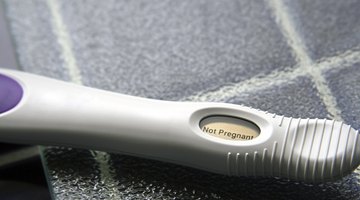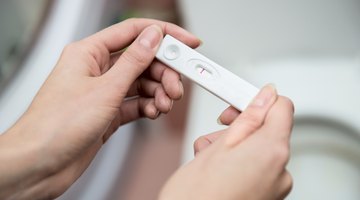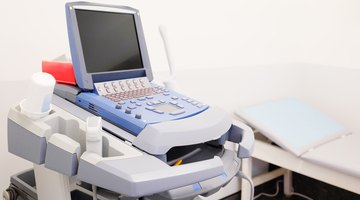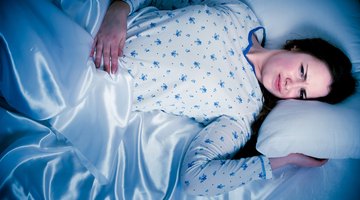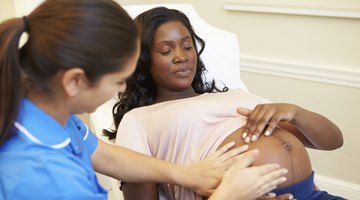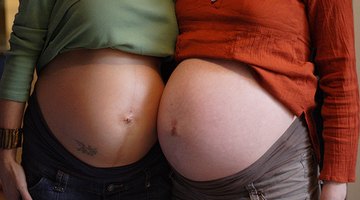Causes of Cramping with No Period and Not Pregnant
Skipping a period is a common occurrence for many women. When accompanied by abdominal cramping and the knowledge that she’s not pregnant, a woman may become concerned. More often than not, abdominal cramping and an absent period are simply two separate symptoms that coincide at the same time. However, there are some conditions where abdominal pain and absence of menstruation may be symptoms of something more serious.
Ovarian Cysts
Ovarian cysts are fluid filled sacs that develop on the ovaries. The two most common cysts are follicle cysts and corpus luteum cysts. Follicle cysts form when the sac fails to break open to release an egg during ovulation, instead the sac keeps growing. The US Department of Health and Human Services reports that these types of cysts most often go away within three months. Corpus luteum cysts form when the sac doesn’t reabsorb into the body after the egg releases. Fluid begins to build inside the sac. These cysts may grow up to four inches and may twist or bleed causing pain. These cysts often go away within a few weeks and rarely are cancerous. Fertility drugs may increase the risk of corpus luteum cysts.
Ovarian Cancer

Symptoms When You Do Not Ovulate From Perimenopause
Learn More
The words ovarian cancer may seem intimidating to women but cramping and a lack of menstruation do not necessarily equal a cancer diagnosis. Ovarian cancer is often called a silent killer because so many symptoms mimic other illnesses. Ovarian cancer commonly gets misdiagnosed as irritable bowel syndrome, stress or even depression, according to the MayoClinic.com. Symptoms of ovarian cancer include abdominal pressure, fullness, swelling and bloating, urinary urgency, pelvic pain and changes in menstrual cycles. A woman may notice that clothes are suddenly tight around her middle. Women suspecting ovarian cancer should schedule an appointment with their gynecologist for a thorough examination. Ovarian cancer caught in the earliest stages has the best chance for a full recovery.
Autoimmune Oophoritis
Autoimmune oophoritis is an inflammation of the ovaries due to the body attacking its own cells. This inflammation results in the destruction, hardening and withering of the ovaries causing a loss of fertility and a decrease in hormone production. Johns Hopkins Medical Institutions report that autoimmune oophoritis is responsible for approximately ten percent of premature ovarian failure. Autoimmune oophoritis may cause lower abdominal pain, fever, fatigue, vaginal discharge and lack of menstruation. As of 2010, no immunosuppressive drug has proven both safe and effective during prospective randomized studies, according to Johns Hopkins Medical Institutions.

